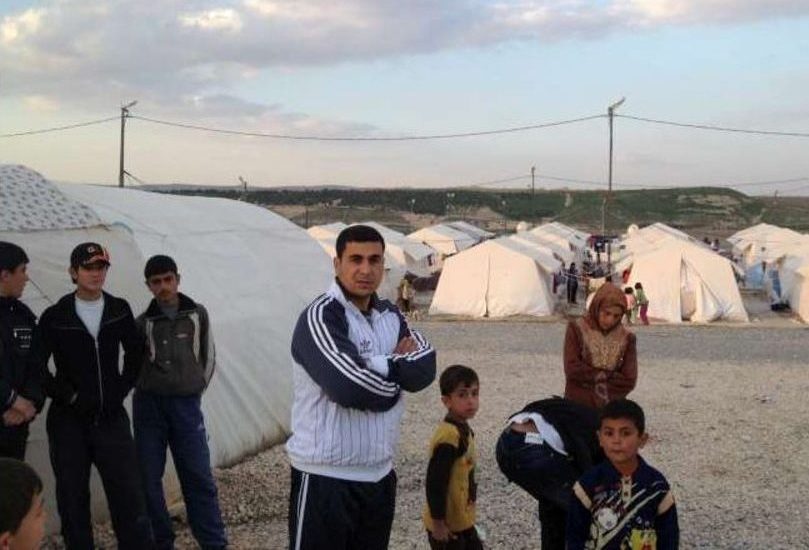20 June 2013, In Turkey’s Kilis province, Syrian refugees now form a third of the population, with thousands camping in a park in the provincial centre. And the number keeps rising.
“Life in Idlib became unbearable, so we had to leave,” says Fatima, who arrived weeks ago with her entire family — including a son with a mental disability – and is now living in the central park of Kilis City. “We are hopeful that they will admit us into one of the new camps that they are building.”
Kilis province, in south-central Turkey on the Syrian border, is hosting an estimated 45,000 Syrian refugees from the two-year-old Syrian conflict alongside its 82,000 Turkish residents. Two large camps house nearly 14,000 refugees but an estimated 31,000 more are believed to be living elsewhere, often in difficult conditions.
They are among 200,000 Syrian refugees thought to be living in Turkey outside 20 camps spread over 10 provinces. The Turkish government has recently started registering them.
In the last three weeks, thousands of Syrian refugees have erected makeshift tents in the central park in Kilis city, waiting to enter new camps. They struggle to make ends meet, particularly to pay for rising rents and basic needs such as education and health. While food and health care is available, largely through Turkish charities, there is limited sanitation.
Despite this daily uphill struggle, Syrian refugees living in the city – both in camps and outside — have been helping each other and receiving Turkish assistance to meet their needs until the day the conflict ends and they can return home.
Abdel Hamid, whose factory in Aleppo was destroyed, is one of 87 Syrian refugees teaching at a school formed nine months ago to meet a priority of parents who arrived in Kilis.
As their children found it extremely difficult to enroll in Turkish schools because of the language barrier and different curriculum, the refugees in Kilis joined forces to establish a school using Arabic and the Syria curriculum. Today, it provides primary education for 2500 Syrian refugees.
Abdel Hamid, who had fled to the nearest Turkish province with his family after his factory was destroyed in February 2012, says the refugee community would never have been able to create the school without Turkish support.
The municipality provided space in three different buildings for classes. Other Turkish organizations gave help to teachers and school materials for the kids. Permission was also given for the International Medical Corps to conduct trauma counseling for children who had suffered horrific experiences.
“They have been very good to us,” said Omar, the school director.
Though Abdel Hamid keeps busy working for the next generation of Syrians, he knows the situation is not sustainable. He, his wife and four children have been living on their little savings; he receives no teaching salary and his 23-year-old son has been unable to find work despite a degree in veterinary medicine.
With no sign of peace in Syria and the number of refugees in Kilis continuing to rise, Abdel Hamid cannot help but worry about the future of his family.

